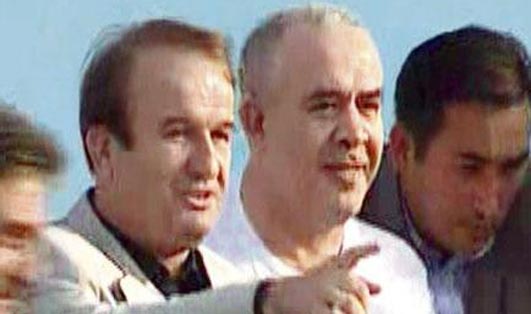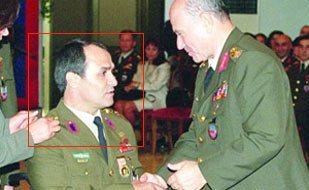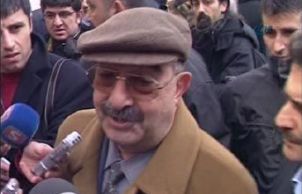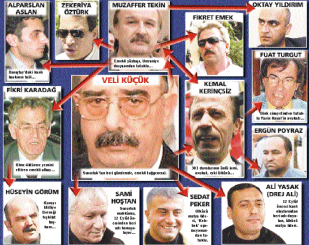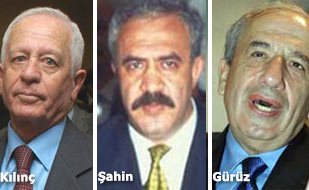Sezgin Tanrıkulu, former president of the Diyarbakir Bar Association, points to the discovery of weapons arsenals and the statement of former Special Operations Police officer İbrahim Şahin as pivotal in the Ergenekon investigation.
Generals implicated
“Of course we only know what the media tells us about Şahin’s statements; however, if that is true, then we are hearing the names of generals for the first time in this trial,” said Tanrıkulu.
İbrahim Şahin, former head of the Special Operations Unit of the police, gave a statement to the 13th High Criminal court on Sunday and implicated 7th Army Commander General Bekir Kalyoncu, who is still on active duty, as well as Brigadier General Metin Gürak, chairman of the General Staff Communications Department.
A team of 300 men
According to Şahin, Kalyoncu and Gürak told him to create a list of officers for a planned anti-terrorism department, of which he, Şahin, would be made undersecretary. According to Star and Sabah newspapers, a list of 300 people was found. Şahin explained that he had created a list of police /army officers under 30 years old to make a team for this planned unit.
Şahin also claims that Kalyoncu asked him to investigate a woman called Serpil.
If this information is true, so Tanrıkulu, then the question is how the government can offer someone with a previous criminal record (Şahin was arrested in the Susurluk case in the mid-1990s) such a duty? Furthermore, says Tanrıkulu, such duties would have to be handed out by ministers or the prime minister, not by generals. “If it is true that Şahin was collecting information on people on Kalyoncu’s demand, then this is illegal.”
Denial by General Staff
Meanwhile, the General Staff has denied these allegations in a short statement:
“Some media organisations have made claims concerning the statements of arrested İbrahim Şahin and personel of the Turkish Armed Forces. These news items do not reflect reality.”
Investigation now based on more concrete evidence
Tanrıkulu had criticised the first indictment of prosecutor Zekeriya Öz, who is leading the Ergenekon investigation, but says that the newest finds may lead to more concrete evidence for the investigation.
For instance, the weapons found buried in Ankara were buried three to four years ago. This shows that there were enough weapons to create havoc in Turkey.
For Tanrıkulu, Şahin is also a key person who connects events since the Susurluk scandal in 1996. Despite his retirement, Şahin still seems to have been active, as can be seen from him meeting with army commanders and secret service officers. The fact that he claims to have warned of a PKK attack on Aktütün days before also shows that he is still active.
A parliamentary committee with special powers
According to Tanrıkulu, Turkey cannot face up to its past in one single investigation. He calls for a parliamentary committee with special powers, since people may refuse to make statements to ordinary committess. Such a special committee would also need to investigate the village clearances in the south-east of Turkey, extrajudiciary killings, as well as the events of Susurluk and Şemdinli. In Şemdinli, gendarmerie officers were involved in the bombing of a bookshop in 2005.
Investigation of JİTEM
The Diyarbakır lawyer also calls for the investigation of the clandestine JİTEM (Gendarmerie Intelligence and Counterterrorism) organisation and its role in extrajudiciary killings. He claims that people used as assassins for JİTEM were later prosecuted and their IDs changed. They were employed elsewhere. These people need to be questioned. (TK/AG)





